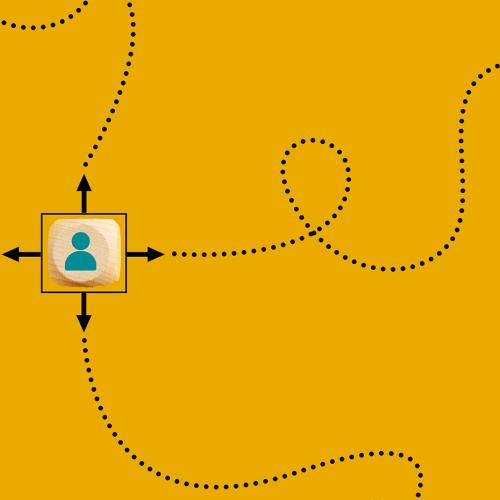What Does a Project Manager Do?
Explore this dynamic profession and uncover the skills needed to succeed as an effective project manager

In today’s project economy, we rely on project managers to keep complex initiatives on track. Projects are precisely planned with ambitious objectives yet must also adhere to strict constraints like budgetary limitations, scheduling challenges, and limited scopes. Project managers navigate all this while acting as effective team leads and stakeholder liaisons. It's a multifaceted role that calls for exceptional coordination, strong communication skills, and an adaptive mindset.
What Is a Project Manager?
A project manager (PM) is responsible for planning, executing, and overseeing projects from start to finish — ensuring they are completed on time, within budget, and in line with defined goals. This role involves coordinating teams, managing resources, setting timelines, and communicating with stakeholders to keep everyone aligned throughout the project lifecycle. Project managers work across a wide range of industries, from construction and engineering to business, marketing, and more. Regardless of the field, successful project managers combine strategic thinking with strong organizational and leadership skills to deliver results efficiently and effectively.
Project Management Roles and Responsibilities
This field is uniquely diverse, encompassing not only several sectors or specializations but also various methodologies or frameworks that determine how project managers navigate complex project lifecycles. Still, most project managers can expect to handle a few key roles and responsibilities:
- Planning and development – Planning is critical to success in project management. This brings a sense of direction to each project, ensuring the project goals and deliverables are fully understood, along with scope and key risks.
- Monitoring progress – Through monitoring, project managers can identify emerging concerns and address them promptly. Monitoring efforts increasingly rely on centralized platforms such as Monday.com and Jira. These help project managers track relevant metrics and gain insight via visualizations. PMs can then use these findings to keep team members and stakeholders fully informed regarding project progress.
- Troubleshooting – Even the most carefully planned and coordinated projects will eventually encounter challenges that are difficult to predict. A systematic approach to troubleshooting allows project managers to quickly identify and address these concerns — determining root causes, evaluating potential solutions, and ultimately implementing corrective actions to maintain momentum.
- Managing budgets – Budget management is a core responsibility for project managers, who must ensure that all activities stay within the approved financial scope. This involves estimating costs, allocating resources effectively, tracking expenses, and adjusting plans when needed to avoid overruns. Strong budget oversight helps keep the project financially viable and builds trust with stakeholders by demonstrating accountability and fiscal responsibility.
- Leading teams – Project managers work with vast teams of professionals that draw upon cross-departmental expertise. As leaders, they promote collaboration and, when needed, help team members navigate conflicts. Effective leaders cultivate dynamic environments in which various team members work together to make progress toward a shared vision.
- Evaluating outcomes – Evaluation allows project managers to assess whether objectives were met and identify areas for improvement. This often includes reviewing key performance indicators (KPIs), gathering feedback from stakeholders, and analyzing project outcomes against initial goals. Through thoughtful evaluation, project managers can capture lessons learned, refine future processes, and contribute to continuous improvement across the organization.
Essential Project Management Skills
Project managers rely on a wide range of technical and soft skills, including foundational project management competencies, plus tailored abilities that reflect their sectors, specializations, or preferred methodologies. Fundamental skills emphasized across all areas of project management include:
- Communication – Working closely with a variety of team members and stakeholders, project managers must clearly outline goals, requirements, and progress by communicating in a clear, succinct manner. Effective communication can also influence team dynamics, determining whether other professionals feel motivated or supported. Active listening is a core element of effective communication that allows project managers to learn from team members and stakeholders while also fostering shared trust and respect.
- Critical thinking and problem-solving – Project managers draw from a number of resources and perspectives to make informed decisions that adhere to timelines, budgets, and project scopes. Critical thinking enables them to handle multiple moving parts. Developing these skills not only improves project outcomes but also builds trust with the team and clients, who rely on the PM’s judgment to keep initiatives on track.
- Time management – Beginning with task prioritization and later involving detailed timelines and strategic scheduling, time management ensures that projects meet agreed-upon deadlines. Project managers leverage tools such as Gantt charts to visualize schedules and monitor progress. Frameworks such as the Critical Path Method (CPM) also support effective time management, as do time-boxed sprints within frameworks like Scrum.
- Delegation – Because project management is inherently team-driven, project managers should be prepared to delegate tasks to team members with the most relevant skills or qualities. This is a key component of time management, as effective delegation promotes greater efficiency.
Project Manager Requirements
There is no singular, standard pathway that can guarantee a successful start in the field of project management. Rather, project management career paths are purposefully designed and adapted to reflect specific goals and preferred specializations. This lends a great deal of flexibility to the training process; different degrees, courses, and certifications can support aspiring project managers in their effort to develop a breadth of skills and industry-relevant knowledge.
- Education – A bachelor's degree is typically the minimum barrier to entry for many project management roles — but beyond this, educational requirements vary greatly and may be industry-specific.
- Work experience – Many roles can help future project managers apply a diverse array of skills while gaining familiarity with everything from workflows to software to stakeholder management. Often, aspiring project managers begin their careers working in entry-level roles, for example, as project coordinators or business analysts. However, it is also possible to transition into project management after working in other fields (such as IT, logistics, or even healthcare).
Achieve Your Full Project Management Potential with Georgia Tech Professional Education
As you prepare for a future in this growing field, consider investing in your continued education and earning industry credentials like the ACP (Agile Certified Practitioner) and PMP (Project Management Professional) issued by Project Management Institute (PMI). Georgia Tech Professional Education is a PMI Authorized Training Partner and has worked with leading PMs in industry to develop project management courses and certificates to help you advance, regardless of your career stage or goals. We even offer specialized opportunities to elevate your career by exploring today's most impactful methodologies. Learn more about our AGILE Leadership Certificate and Project Management Certificate or contact us today to explore our other project management training opportunities.

